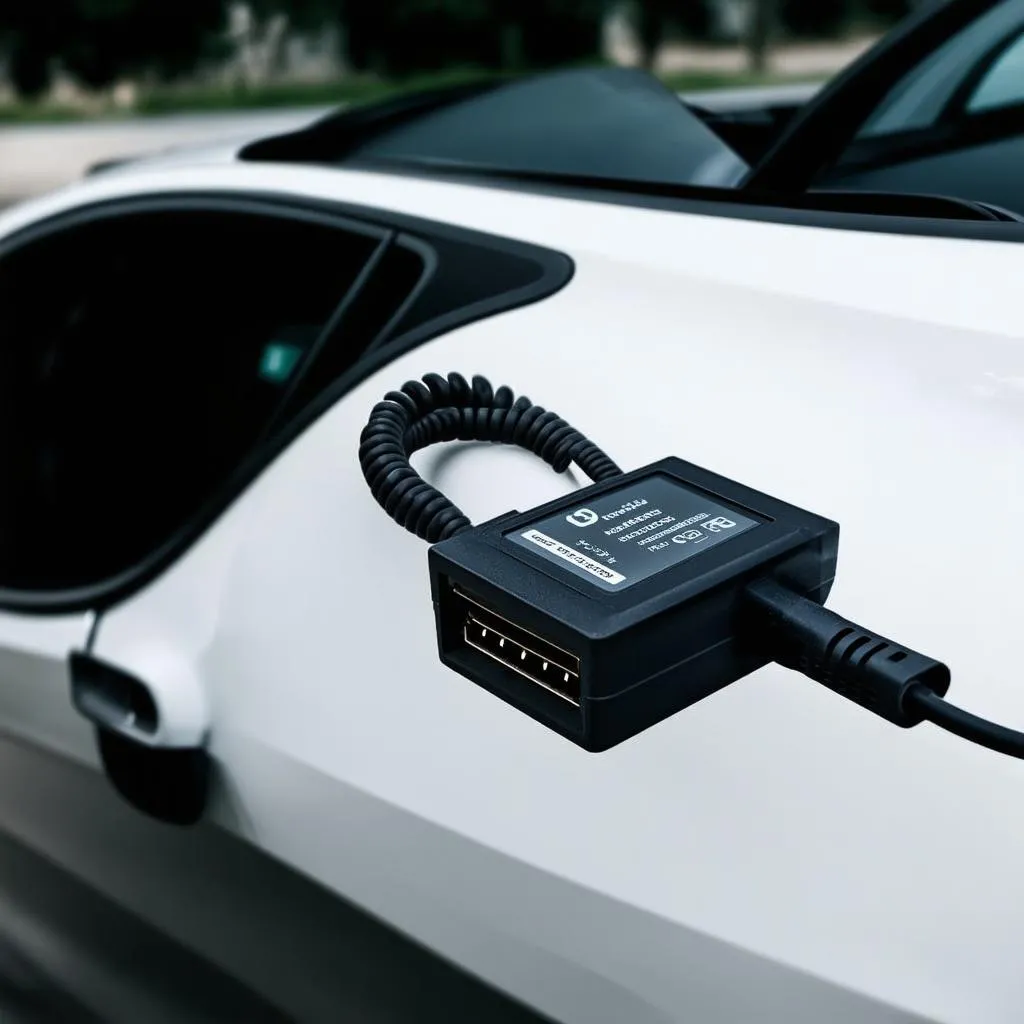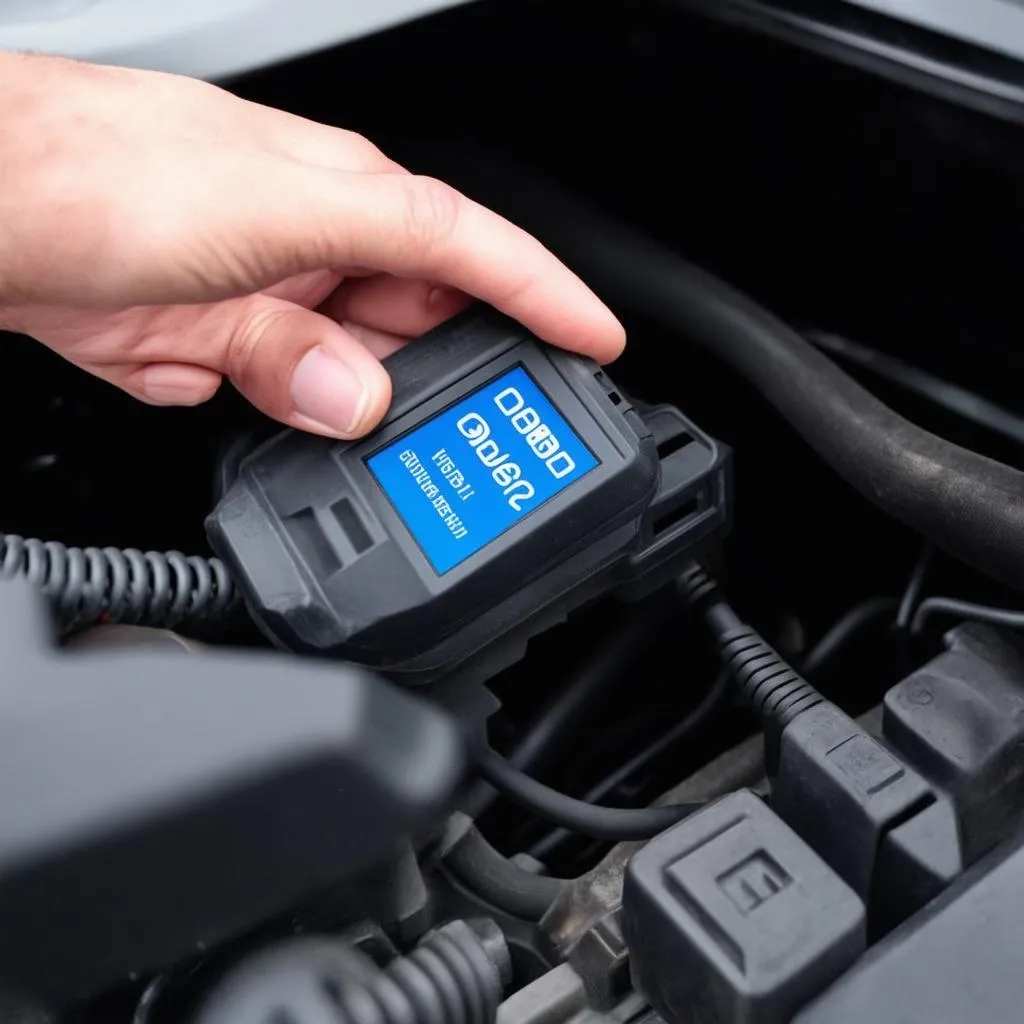Have you ever heard the term “OBD” thrown around in the car repair world and wondered what it means? It’s like that secret handshake everyone knows but you, leaving you feeling a little lost in the conversation. Don’t worry, we’re here to break it down for you!
What Does OBD Mean?
OBD stands for On-Board Diagnostics. Think of it as your car’s personal health tracker, only instead of monitoring your steps, it’s watching your car’s vital signs. OBD is a system built into modern cars that monitors various components and systems to ensure everything is running smoothly. Like a tiny detective, it’s always on the lookout for problems and reports them back to you through a series of codes.
Why Should You Care About OBD?
Understanding OBD is crucial for anyone who wants to keep their car running smoothly and avoid expensive repairs. It allows you to:
- Identify problems early: OBD can detect issues with your engine, transmission, emissions, and other vital systems long before you notice any symptoms. This allows you to address problems promptly before they escalate into major issues.
- Save money on repairs: Early detection of problems can prevent expensive repairs later.
- Improve fuel efficiency: OBD can help identify problems that are causing your car to burn more fuel than it should.
- Ensure your car meets emission standards: OBD helps ensure your car meets the required emission standards.
A Brief History of OBD
OBD technology has been around for decades, with its roots tracing back to the 1980s. It was initially used by car manufacturers for internal diagnostics, but regulations in the 1990s mandated the inclusion of standardized OBD systems in all vehicles. These regulations were driven by environmental concerns and the desire to curb air pollution.
How Does OBD Work?
OBD systems use various sensors throughout your car to collect data about its performance. This data is then processed by a computer called the Engine Control Unit (ECU). The ECU analyzes the data and checks it against predetermined parameters. If any deviation from these parameters is detected, the ECU stores a diagnostic trouble code (DTC) in its memory.
What is a Diagnostic Trouble Code (DTC)?
DTCs are basically messages that your car sends to you about potential problems. Think of them as cryptic messages from your car, telling you what’s going on in its inner workings. They are typically four or five digits long and are organized by specific categories (e.g., P-codes for powertrain, B-codes for body, C-codes for chassis).
How Do I Access DTCs?
To access DTCs, you’ll need an OBD2 scanner. These are relatively inexpensive devices that plug into your car’s OBD2 port, typically located under the dashboard. OBD2 scanners can read and interpret DTCs, providing you with valuable insights into your car’s health.
What Does OBD Stand For: Common Questions
What does OBD2 mean? OBD2 is the second generation of OBD, introduced in 1996. It is a standardized system used in most vehicles sold in the United States and many other countries.
Why is OBD important? OBD is essential for monitoring your car’s health, identifying problems early, and ensuring proper emissions control.
What does it mean if my check engine light is on? A check engine light indicates that the ECU has detected a fault code. You can use an OBD2 scanner to read the code and determine the issue.
How do I reset my check engine light? You can typically reset your check engine light by clearing the DTCs using an OBD2 scanner. However, it’s important to address the underlying issue that caused the light to come on in the first place.
Does OBD work on all cars? OBD is a standard system, so it should work on most vehicles manufactured after 1996. However, older cars may require a different type of scanner or diagnostic procedure.
Can I use OBD to improve my car’s performance? While OBD can be used to diagnose performance issues, it’s not recommended to use it to modify your car’s performance settings.
Can I use OBD to get my car inspected? Yes, in many jurisdictions, OBD2 scans are used during emissions testing.
What OBD scanner should I get? There are a variety of OBD2 scanners available, ranging from basic to advanced. It’s important to choose one that meets your needs and budget.
Beyond the Basics
OBD technology is constantly evolving, with new features and applications emerging all the time. From performance tuning to vehicle tracking, the possibilities are vast. While OBD can be a powerful tool, it’s important to approach it with a balanced perspective. It’s not a magic bullet that can solve all your car problems, but it can be a valuable ally in keeping your car healthy and on the road.
 obd2-scanner-for-diagnostics
obd2-scanner-for-diagnostics
 obd2-port
obd2-port
Want to Learn More?
We hope this has given you a solid understanding of What Obd Stands For and its importance. For more in-depth information on OBD, we encourage you to explore our other articles on various aspects of OBD technology:
- Read more about OBD’s role in catalyst efficiency
- Learn how OBD is used in engine starting systems
- Discover the best OBD scanner for your Silverado
- Dive into the fascinating world of OBD-based auto-start systems
- Explore the exciting world of OBD with expert Cody Travers
Ready to take your OBD knowledge to the next level?
Contact us today at +84767531508 to learn more about our professional diagnostics tools and get expert advice on all your car’s electrical needs.
We’re here to help you keep your car running smoothly for years to come!